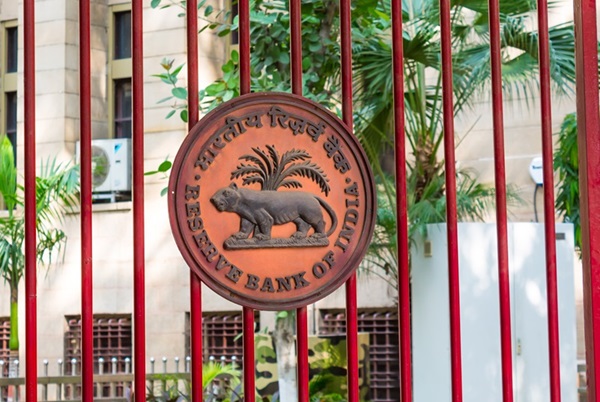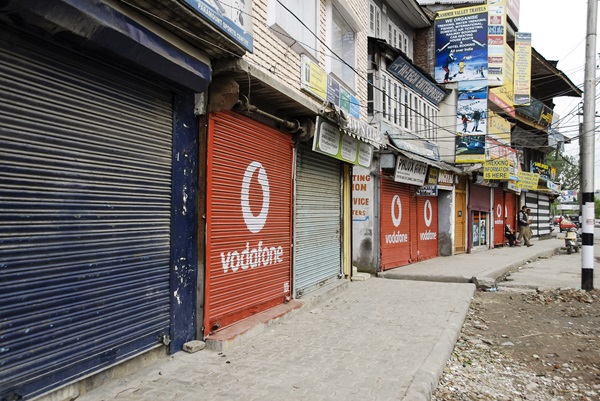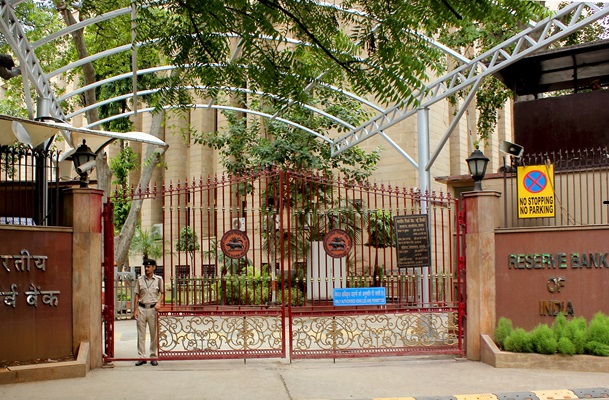.png)
India's Precision Strikes Hit Terror Camps Deep Inside Pakistan
India carried out precision airstrikes on terror camps in Pakistan, calling it a proportionate and non-escalatory response to the Pahalgam massacre.
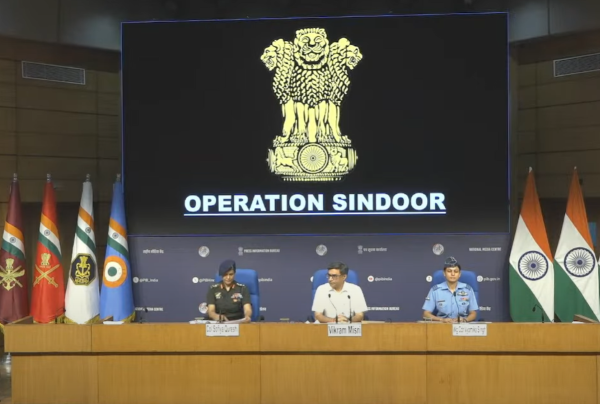
By BasisPoint Insight
May 7, 2025 at 9:39 AM IST
India’s armed forces struck with “clinical efficiency” early Wednesday morning, targeting multiple terrorist infrastructure sites deep inside Pakistan and Pakistan-occupied Jammu and Kashmir. The precision strikes, as per Wing Commander Vyomika Singh, aimed to neutralise specific buildings and groups of structures linked to cross-border terror modules responsible for the April 22 Pahalgam massacre.
“The point of impact and each of the targets was a specific building or a group of buildings,” Wing Commander Singh said, describing the strikes as a “measured, non-escalatory” operation carried out using niche technology and carefully selected warheads to avoid collateral damage.
“All the targets were neutralised with clinical efficiency,” she said.
No Pakistani military establishments were hit in the operation.
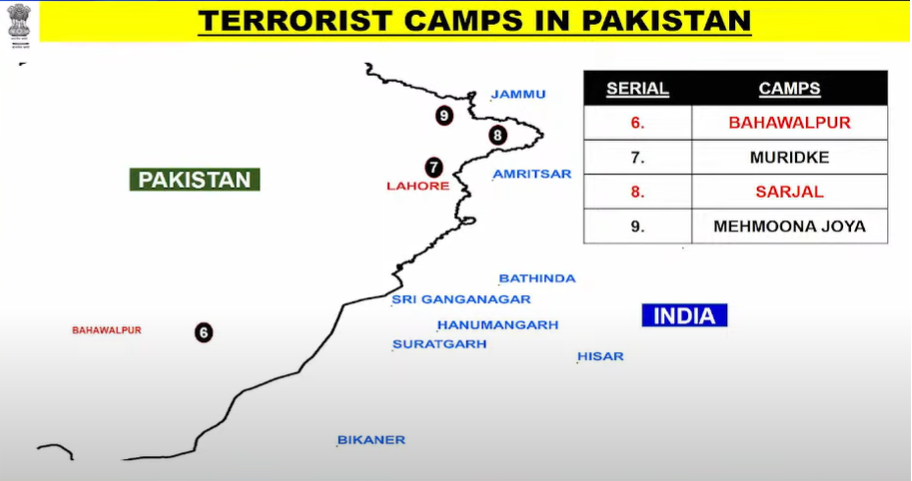
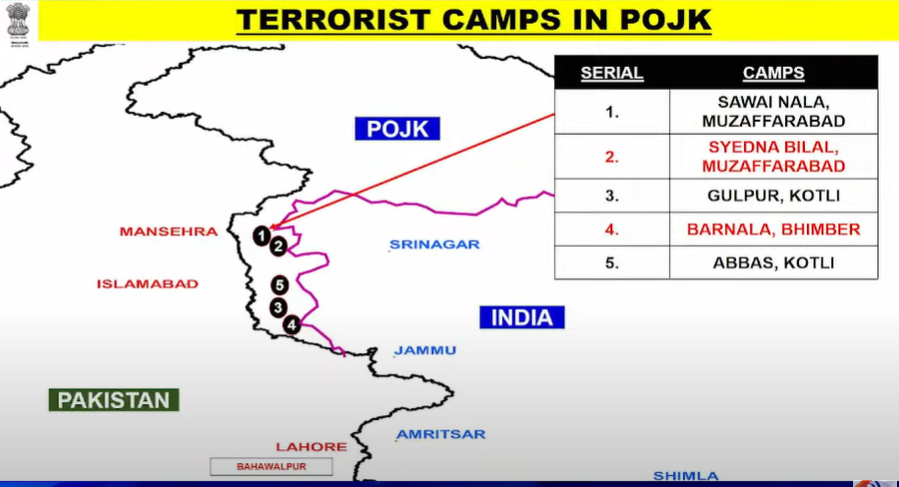
Colonel Sofiya Qureshi, who also addressed the briefing, confirmed that Indian forces exercised considerable restraint, but reiterated that they remain fully prepared to respond to any escalation initiated by Pakistan.
Foreign Secretary Vikram Misri, speaking at the same briefing, declined to take questions. “I ask your indulgence today in view of the fact that this is still an evolving situation,” Misri said. “We will therefore not be able to take questions and answers today, but we will come back for more updates and more briefings shortly.”
The strikes, dubbed Operation Sindoor, come fifteen days after a gruesome attack by Pakistani terrorists in Pahalgam, Jammu and Kashmir, in which 26 civilians—25 Indians and one Nepali national—were killed. Misri described the incident as “the largest number of civilian casualties in a terrorist attack in India since the 26th November 2008 attacks in Mumbai.”
“The attack in Pahalgam was marked by extreme barbarity, with the victims mostly killed with head-shots from close range and in front of their families,” Misri said. “Family members were deliberately traumatized through the manner of the killing, accompanied by the exhortation that they should take back the message.”
He said the assault was clearly aimed at derailing normalcy in Jammu and Kashmir, particularly by targeting tourism, which had seen a record 23 million visitors in the previous year. “The calculation, presumably, was that harming growth and development in the Union Territory would help keep it backward and create fertile ground for continued cross-border terrorism from Pakistan,” he stated.
Responsibility for the Pahalgam killings was claimed by The Resistance Front, which Indian intelligence says is a proxy for Lashkar-e-Taiba, a United Nations-proscribed terrorist organisation based in Pakistan. India had flagged TRF’s growing activity in reports to the UN’s 1267 Sanctions Committee in both May and November 2024, and again in December 2023, specifically warning of Lashkar and Jaish-e-Mohammad’s use of cover entities.
“Pakistan's pressure to remove references to TRF in the April 25 UN Security Council Press Statement is notable in this regard,” Misri said.
Investigations into the Pahalgam attack, he said, have established links between the attackers and handlers in Pakistan. “The claims made by The Resistance Front and their reposting by known social media handles of the Lashkar-e-Taiba speak for themselves,” Misri said, adding that Indian intelligence agencies had developed “an accurate picture of the planners and backers of this team.”
He reiterated India’s long-standing position that Pakistan has a history of harbouring and sponsoring terrorism. “Pakistan also has a well-deserved reputation as a haven for terrorists from around the world, with internationally proscribed terrorists enjoying impunity there,” he said.
“In addition, Pakistan has been known to wilfully mislead the world and international forums, such as the Financial Action Task Force, on this issue,” Misri added. “The Sajid Mir case, in which this terrorist was declared dead and then, in response to international pressure, brought back to life, found alive and arrested, is the most glaring example.”
India's response, according to Misri, was driven by the lack of action from Pakistan and credible intelligence indicating further attacks. “There was thus a compulsion both to deter and to pre-empt,” he said.
He linked India’s actions to the April 25 statement from the UN Security Council, which underlined “the need to hold perpetrators, organisers, financiers and sponsors of this reprehensible act of terrorism accountable and bring them to justice.” “India's latest actions should be seen in this context,” Misri said.
While India has characterised its strikes as defensive and limited, the message to Islamabad is unmistakable: cross-border terrorism will be met with force, and attempts to exploit Kashmir’s peace dividend through violence will not go unanswered.
Further briefings are expected in the coming days as the situation evolves.




